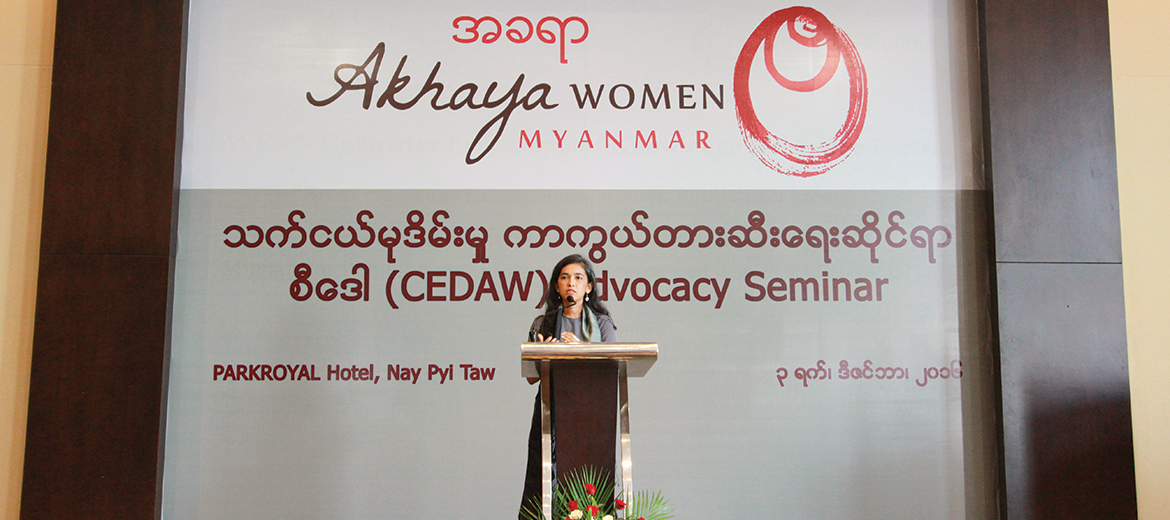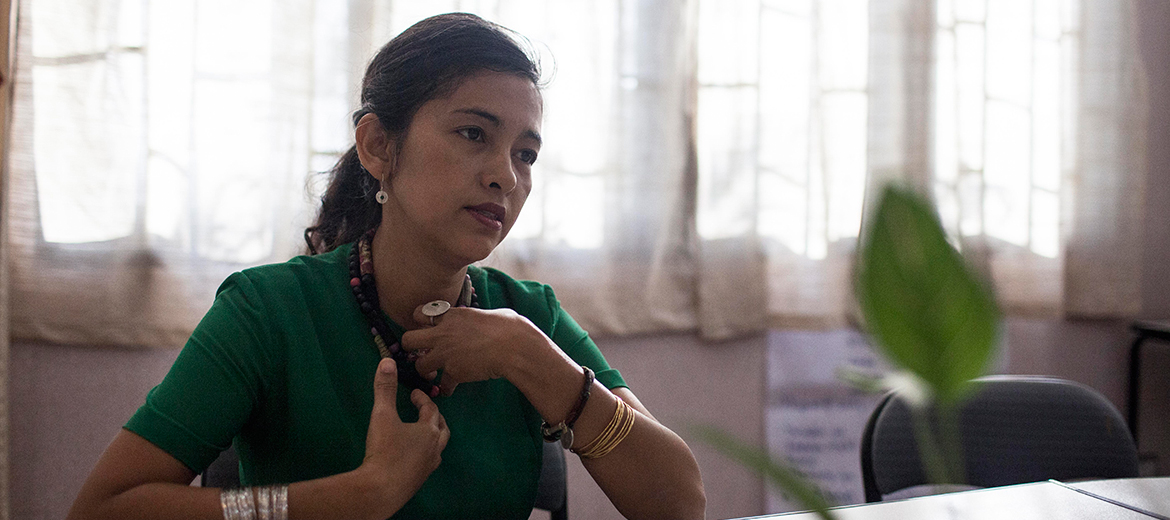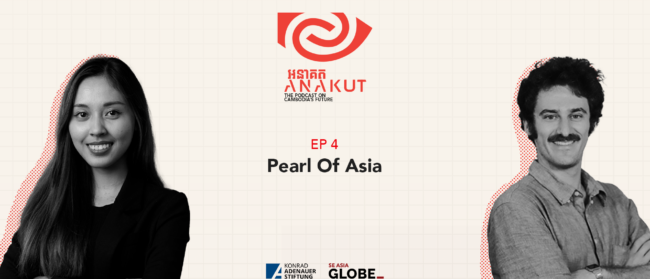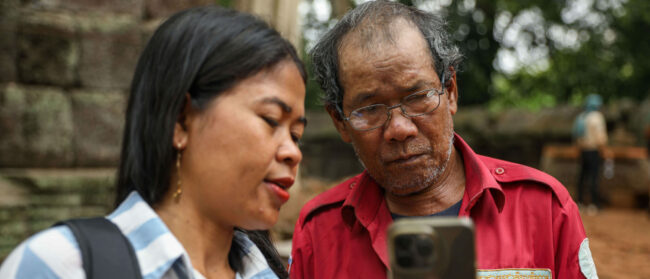What inspired you to create Akhaya Women, and how did the organisation come to be?
In 2008, when I was 37, I attended a sexual health workshop by an Israeli sex therapist who was visiting Myanmar, and she educated us on the menstrual cycle and female sexuality. After this workshop I started to question why our religion doesn’t allow us to speak about women’s sexuality. I asked myself: ‘Why is there this prejudice; why are women being told that our bodies are dirty and our menstrual blood is dirty?’
These questions prompted me to stop working in international NGOs, and I started to gather women at my house to discuss these issues. For most of the women who attended, this was the first time they had ever discussed their sexuality… It totally empowered them, so they continued to talk about it in their own homes, at school, at work, and in this way more and more women started to come and started to become interested in discussing their sexuality, sexual violence and their own stories of harassment.
In 2010, Akhaya was officially founded and we started the current curriculum called Women Empowerment through Sexuality Dialogue. It was in 2012 that we started our very first campaign called ‘Whistle for Help’.
What did the campaign focus on?
We formed an action committee with around 300 volunteers and decided we would hand out tens of thousands of whistles and flyers to women on buses. We said to them that if they faced sexual harassment they should blow the whistle.
In our country, sexual harassment on our public buses was huge. We didn’t talk about it because we thought we had to accept it, because men’s sexuality was in control. Young women are trained not to be assertive, we are trained not to say no. There was a case where my sister was sexually harassed, and the man ejaculated on the back of her longyi [a piece of fabric worn around the waist like a sarong] while she was on the bus.
It was a really large issue that had been normalised.
After weeks of planning we launched the campaign and it was a huge success. It was like fire. There was international media coverage. Even the bus drivers supported us; they said they would hand out whistles if we came back in the evening, when more sexual harassment occurs because men ride the buses after drinking.
The campaign was [held] four months after the country had opened and the new government was elected, so it was in a very, very early stage of opening Myanmar to the world. By the time the government could say no we had done it without them.

What do you think are the origins of the kind of sexual harassment you just mentioned?
Ultimately, women are characterised as second-class citizens, which leads men to have no respect for women. Women are trained to be submissive to what men do to them. There is a lack of sex education, which allows for the violence and harassment. There is no discipline for men. They are trained to be daring.
There is all this prejudice around things like ironing and washing clothes. When women are cleaning clothes they need to keep their clothing separate from the men’s. Even when the clothes are clean and dry you cannot put them in the same pile. You have to hang women’s clothes lower than men’s. Men’s clothes need to be ironed first and separately from women’s – especially the bottom parts.
It is engraved in our society. There is prejudice occurring daily. We are constantly sending the message that women are lower than men.
What criticisms has Akhaya Women faced over its revolutionary content?
Within our organisation, we are known as activists. However, we have faced criticism because people have labelled us as extremists. I think it’s because we are the first organisation who have started to talk about women’s sexuality and that is something that is very, very opposite to what the people of Myanmar believe and what they practise. It is completely outside Myanmar’s cultural and social norms.
Nowadays, though, there is not so much criticism. We are more popular, and people are very supportive of organisations that help violence survivors. Now people are more and more accepting and willing to listen to what we have to discuss.

What are the biggest challenges you faced in getting your organisation and its campaigns off the ground?
Initially, one of the biggest challenges was that I didn’t know how to organise a campaign. I had never seen a campaign before – apart from the 1998 student uprising.
Another challenge was the fear of not knowing what was going to happen to us [when carrying out the Whistle for Help campaign]. We organised very nicely, but we never knew whether we would be arrested, or if somebody was going to respond very violently, or if we were going to be asked really difficult questions.
We couldn’t anticipate what would happen. However, we were so surprised that nobody really gave us any trouble… After we did it we were so, so glad. We even cried. We were jumping and crying and shouting.
What real change has Akhaya Women managed to effect, and what are you most proud of?
Starting in 2015, Akhaya has trained and spoken to staff from the UN, other NGOs and also religious leaders. Akhaya Women and the Department of Social Welfare are currently leading the [implementation] of the National Strategic Plan for the Advancement of Women, which [aims to ensure] protection against violence for women and children.
We speak and work closely with women in government. We have highlighted to them various gaps in our laws on rape and crimes against women and advised the parliamentarians to implement a more inclusive classification of rape to protect women from violence.
Finally, do you think the kind of patriarchal society in Myanmar that we’ve been discussing is changing?
The society is not really changing. However, women are starting to realise that gender inequality exists. Women are now in the contemplation stage of that realisation.


